Jenness Ruhl Peckham of South Kingstown was a force to be reckoned with in a man’s world during the 1920s and 1930s. She spoke her mind and stood firmly for what she believed, even when she stood alone.
“Courage, devotion, a resolute purpose that never failed, a will which held fast and a spirit which drove her on, those were her qualities,” wrote Henry A. Congdon in the Dec. 31, 1941, issue of the Narragansett Times, 29 days after her passing on Dec. 2, 1941, at the age of 41.
She packed a lot of life into those 41 years.
Jenness ran twice for state Senate, first as a Democrat and the second time as a “fusion candidate” under the banner of the Democratic and Independent Citizens parties. She served nine years on the South Kingstown School Committee, the last year as its chairwoman. For that seat she ran as a Republican and said the party affiliation had no bearing on any of her decisions.
She was a member of the Daughters of the American Revolution, Grange, American Association of University Women and Every Tuesday Club, which was a group of women who discussed books, current events and history.
Jenness was born in Des Moines, Iowa, and also resided in Texas and Montana before attending college at Denison University in Ohio, a move that ultimately led her to Rhode Island. Her mathematics professor was Miss Anna Peckham from Kingston. Anna was the half-sister of Jenness’s soon-to-be husband, Arthur N. Peckham.
Her college yearbook is a nod to the times. Alongside her senior picture is written, “When we think of Jenness, we think of mathematics and good-looking hair. It is hard to find a girl who enjoys mathematics, yet here is one who not only enjoys it, but can make good grades in it. And as for the hair — if you want your hair to look well, just let Jenness do it up. With all her accomplishments, you cannot find a sweeter or more unselfish girl in school than Jenness.”
Jenness graduated from Denison in 1922 with high honors, Kappa Kappa Gamma and Phi Beta Kappa.
By all accounts, Jenness and mathematics professor Anna Peckham became friends, and Jenness was introduced to her brother, Arthur, when he visited the university.
Arthur and Jenness
Arthur Noyes Peckham, a native of Kingston village, was 12 years Jenness’ senior. He had studied for one year at the fairly new Rhode Island College of Agriculture and Mechanic Arts (now the University of Rhode Island) before transferring to Denison University.
Sometime in 1904, Arthur suffered injuries in a train wreck that slightly crippled him, the scars of which he carried for the rest of his life. His injuries, however, were not enough to stall his graduation. And after getting his diploma in 1905 at the age of 22, Arthur prospected for gold and worked on ranches in Arizona. He returned to Kingston in 1908 to administer his parents’ estate after their death.
Luckily for Rhode Islanders, his sister, Anna, introduced the pair when he visited Denison in 1922. On March 7, 1924, Jenness married Arthur, and shortly thereafter she made South Kingstown her home.
Arthur had extensive land holdings in Rhode Island, Massachusetts and eastern Connecticut. Some of his enterprises included the operation of three sawmills, growing potatoes for market and growing bent grass for seed production. His main consumers of the seed were golf courses, public parks, and farmers for use in their pastures.
Jenness became Arthur’s partner in life and in work, quickly becoming engaged in South County’s agricultural community. Besides her duties as administrator of their farm, Jenness became the first woman elected secretary of the Washington County Agricultural Fair on Sept. 13, 1929. The Narragansett Times noted in an article that Jenness “is a Western woman and according to all accounts and appearances, she is injecting a little of the fire, pep and go do it of the West into the old South County organization. At any rate, those who are running the fair are certainly on the balls of their feet.”
At the time she became secretary, Arthur was manager of the fair. With Jenness’ attention to detail and drive, the dynamic duo took the fair to new heights.
Jenness remained the fair’s secretary right up to her death, tending to the fair at the same time she was undergoing medical procedures.
An article in the Providence Evening Bulletin on Aug. 29, 1940, was headlined, “State Fair at Kingston Provides Busy Year-Round Job for Mrs. Peckham.”
“Half of the management of the Rhode Island State Fair which opened at Kingston yesterday is a woman’s job. The woman is Mrs. Arthur N. Peckham, partner with her husband both in his business and in the direction of the of the 65-year-old event.”
The article noted that Jenness had gone to bed at midnight on the eve of the fair’s opening day. The next morning, she rose at 4 a.m. and supervised the arrival and placement of exhibits. The fair ran for six days.
In the article, Jenness was quoted as saying that the 1940 fair was the best because it had four times as many exhibitors as the previous year and a higher quality of entries, particularly from women.
“One of her chief interests for the continuance of the fair, now that it has been established on a permanent basis, is the cultivation of an interest among young people, particularly the 4H club members, to carry on the traditions of the Kingston Fair,” the article noted.
An article in the Aug. 10, 1941, edition of the Providence Journal was headlined, “State’s Busiest Woman.”
“Her contributions to making the fair a success include dividing state appropriation into department budgets, dummying the premium books, supervising all exhibits, handling tickets and last but not least, seeing that the children lost on the fairgrounds are reunited with their parents,” the article said.
Another article in an agricultural publication regarding her passing noted that “when her husband was appointed manager of the Rhode Island State Fair some years ago, Jenness’ untiring efforts in its promotion largely accounted for the fact it increased in size, reputation and quality to such an extent that its rating increased from 60th to fifth position among the fairs of New England.”
Jenness goes to Washington
In 1930, Jenness worked with Sen. Jesse Metcalf, a rich and influential Republican from Providence, to persuade Congress to enact tariffs to protect the production of bent grass seed, a major South Kingstown product.
Sen. Metcalf filed legislation for a 40 percent tariff. Congress agreed to a 10 percent tariff, and Jenness was credited for the legislative win.
In 1931, while on the South Kingstown School Committee, Jenness spoke against a plan to spend $200,000 to build a new junior high school in Matunuck. The Narragansett Times reported that her neighbors and fellow School Committee members disagreed with her. The vote on sending the school question to voters was 3-1, with Jenness the lone dissenter. She did not believe the community could afford to increase its indebtedness for a building and take on the added expense of maintenance.
To put things in perspective, one must remember that in 1931 the country was in the middle of the Great Depression. President Franklin Delano Roosevelt’s New Deal was two years away. Factories were closed. Farms and homes were being foreclosed. In 1931, six million people were out of work.
In 1933 Jenness was appointed by the South Kingstown Town Council to represent the town in obtaining state and federal appropriations for Point Judith Pond improvements. Her weeks of lobbying in Washington were successful. She also got appropriations from the state to fund acquisition of land and the building of docks.
An article in the Pettaquamscutt Reporter in November of 1982 credited her work for the growth of the village of Gallilee and its importance as a fishing port and tourist destination.
It noted that Jenness’s effort resulted in deepening and widening the channel and dredging the deep-water harbor at the entrance of the pond.
“With this new and deeper channel and new and sufficient docking facilities, business increased rapidly,” the article noted. “The trade with Block Island which formerly had been through Newport, was soon changed to the new harbor at Gallilee and a regular shipping line to the island was soon established.”
The Reporter newsletter also noted the Peckham family was part owner of the Great Island, “and for years it lay to the north of the breachway, stark and uninhabited …. The Peckhams recognized the opportunity for development there, and Mrs. Peckham became the one to carry development forward.”
The Great Island is at the end of the Gallilee Escape Road and today has about 360 homes.
Jenness was also appointed by Gov. T.F. Green to represent Rhode Island at the National Rivers and Harbors’ 54th annual convention in 1934.
Detractors
Not everyone thought highly of Jenness. Sen. Thomas P. Hazard served in the state Senate from 1924 to 1932. During the campaign to fill his seat, he supported the Republican candidate, Wallace Campbell, who was running against Jenness. Hazard pulled no punches during campaign speeches.
“Mrs. Arthur N. Peckham first came into public notice when she was successful in obtaining an exceedingly high and unjust tariff on bent grass seed,” said Hazard. “As we all know, this was not an act of public service but was of considerable financial interest to Mrs. A. N. Peckham, the largest producer of bent grass seed in the world and a handful of farmers scattered in the states east of the Mississippi. She was successful in having herself elected to the school board and last June was instrumental in electing the Citizens’ Party Town Council.
“It is interesting to note that one of the first projects (not authorized by the Financial Town Meeting) achieved by the new road supervisor was the resurfacing of the little-traveled road that passes the Peckham’s home. (That was on North Road.)
“What are her motives to be elected to the Senate?” Hazard asked. “The Republican nominee Wallace Campbell is the better nominee.”
Campbell would go on to win the seat representing South Kingstown.
Another issue that year was Prohibition.
The Narragansett Times was a vehicle for community members to share opinions, and there was often give and take on a variety of subjects in which Jenness was involved. One of those was Prohibition.
Bernon E. Helme, a prohibitionist, was a Kingston resident and frequent letter-writer to the Narragansett Times. During Jenness’s run for state Senate, Helme wrote letters to the paper seeking her opinion on whether the 18th Amendment should be repealed.
Jenness refused to get drawn into the battle. Prohibition was not enforceable, and it seemed impossible to legislate sobriety.
Instead, she used her reply in the Times to give Helme a civics lesson.
“Only members of Congress have the power to repeal or amend amendments to the Constitution,” she wrote in a letter in the Narragansett Times on Oct. 14, 1932. “Each party has a plank calling for repeal or change of the 18th Amendment.”
The question would be then sent to a non-partisan state convention, of which she would not be a member.
“What I may think either as a private citizen or as a public servant, or a member of the state legislature, will in no way help decide the question. When Congress states exactly what this phrase signifies, I shall be glad to state an opinion concerning it. State control has no meaning until it is defined by Congress.”
Jenness concluded her rebuttal by saying, “Such talk is a distraction keeping the legislature from doing the public good.”
Loss of a light
Jenness Ruhl Peckham died on Dec. 2, 1941, at the Homeopathic Hospital in Providence at the age of 41.
According to her death certificate, her untimely passing was ultimately the result of a bowel obstruction in the small intestine that resulted in peritonitis, likely caused by a hysterectomy performed a month earlier. She had battled myoma of the uterus and menorrhagia nearly 5 years.
None of the details of her medical challenges were reported in the newspaper.
On the day of Jenness’s funeral at Kingston Congregational Church, schools were closed at noon. In attendance were associates of the Fair Association, faculty of Rhode Island State College, South Kingstown teachers and School Committee members. She was buried in Arthur’s family cemetery, the Nathanial C. Peckham Lot, Rhode Island Historic Cemetery 5, in Kingston.
“In the whole state there are not many men who could compete with Jenness Ruhl Peckham in her unusual combination of scholastic and financial and administrative and social abilities,” wrote C. B. Beardslee of Bethlehem, Pa., in the Dec. 12, 1941, issue of the Narragansett Times shortly after her death. “Mrs. Peckham made a unique contribution to the prestige of South County and of Rhode Island and the authority of her personality reached beyond the state."
Beardslee added, “She lived a life of moral beauty and her memory will be cherished by all who knew her.”

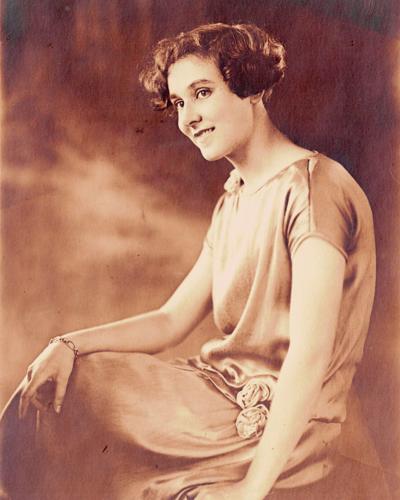
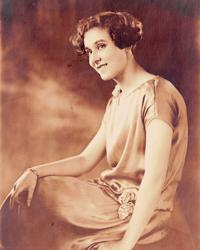
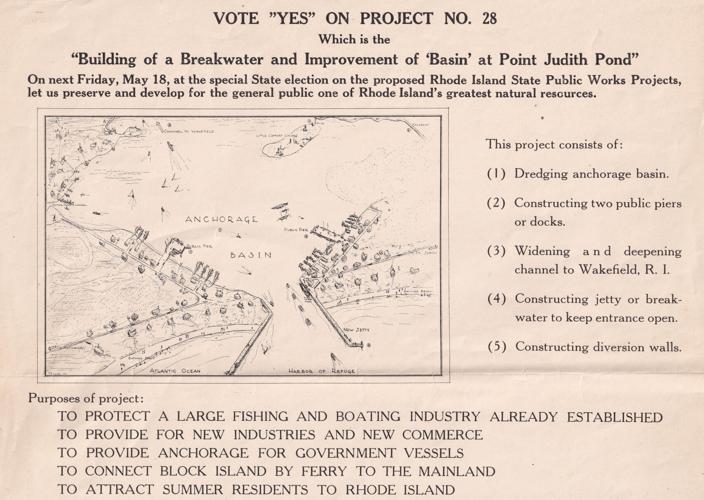
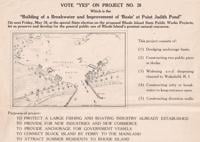
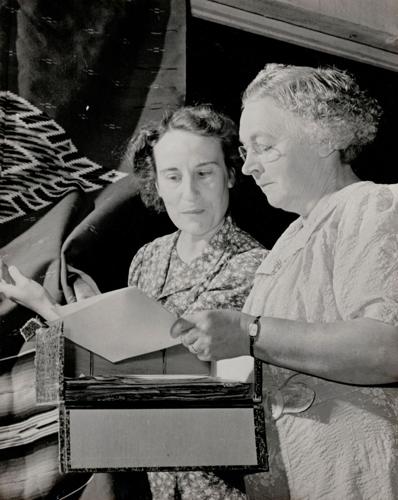
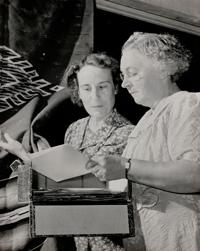
(0) comments
Welcome to the discussion.
Log In
Keep it Clean. Please avoid obscene, vulgar, lewd, racist or sexually-oriented language.
PLEASE TURN OFF YOUR CAPS LOCK.
Don't Threaten. Threats of harming another person will not be tolerated.
Be Truthful. Don't knowingly lie about anyone or anything.
Be Nice. No racism, sexism or any sort of -ism that is degrading to another person.
Be Proactive. Use the 'Report' link on each comment to let us know of abusive posts.
Share with Us. We'd love to hear eyewitness accounts, the history behind an article.